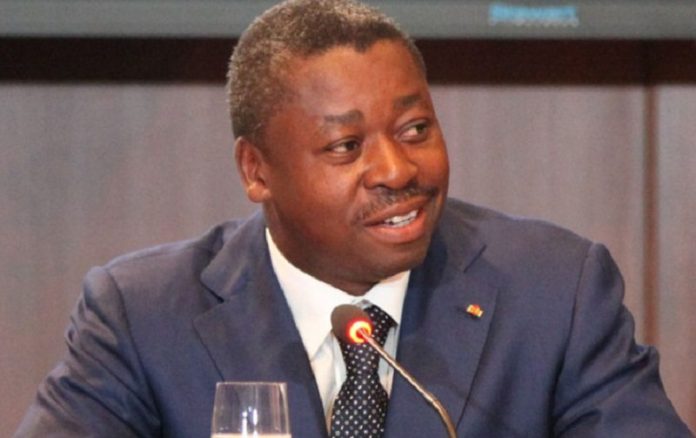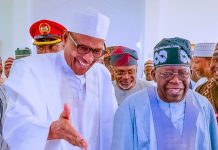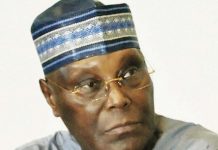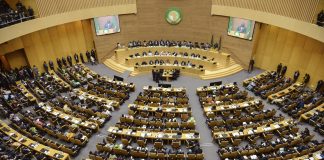African Heads of State who change national constitutions in order to remain in power beyond their term limits seem to be nearing the end of the road. The citizens of some of the concerned countries have seen the light, so to say. They have sworn to assert their rights by resisting the antics of such sit-tight rulers, even at the risk of death. For instance, in Togo, recent reports say that protesters have been burning tires and barricading roads to force political change in a country ruled by the same family for five decades. “Faure Eyadema must go! We don’t need him anymore,” demonstrator Henri Alifoe, 35, said. “We demand change. After succeeding his father in 2005, Eyadema must step down to give others opportunity.”
The situation in Togo reflects a common problem throughout Africa, where ostensibly democratic societies seem stuck with aging leaders or family dynasties who cling to power through fraudulent elections or constitutional changes forced on their people. The same thing obtains in Zimbabwe, Uganda, Cameroon, Mozambique, Sudan, Chad and the Democratic Republic of Congo for decades despite laws that prohibit their leaders from holding power for so long.
Many other African leaders, such as Paul Kagame of Rwanda, Burundi’s Pierre Nkurunziza and Robert Mugabe of Zimbabwe have successfully changed the constitutions of their countries to remain in power for life despite broad opposition in their domain. Fifty-nine year old Mr. Kagame, has been in power since 2000 while Mr. Nkurunziza, who is aged 53, has ruled since 2005.
Ninety-three year old Mugabe, who has run his country for 37 years as a virtual dictator, was humiliated two weeks ago when the World Health Organization named him a “goodwill ambassador” and then rescinded the title after global protests about his poor human rights record and inferior health care in Zimbabwe.
Africans who are tired seeing their leaders holding onto power for so long are pushing for term limits and free elections monitored by international observers to force out the incumbents. The struggle recorded a major victory in The Gambia last January, when Adama Barrow defeated Yahya Jammeh, who had ruled the small country on Africa’s western coast for 23 years. That singular political success has given hope to reformers elsewhere.
In the Democratic Republic of Congo, President Joseph Kabila, who has been in power since 2001, sparked a backlash when he moved elections scheduled for December 2016 to 2019. The opposition has staged mass protests in the capital Kinshasa to remove Mr. Kabila from office. The protest has left more than 100 people dead, according to a human rights group. A notable opposition leader, Felix Tshisekedi, swore “We will not accept Kabila clinging onto power. We are going to mobilize people to remove him from office.
In Uganda, seventy-three year old Yoweri Museveni, could become president for life after lawmakers from his party introduced a bill in late September to abolish a constitutional provision that bars anyone 75 or older from running for president. Museveni has been president for 31 years and his current term ends in 2021.
The proposal has triggered civil unrest, including the fatal shooting by police of two protesters in a southwestern town this month. “We cannot allow Museveni to continue being president. We have to force him out of the office,” said 22-year old Hillary Bwire, a student at Makerere University in the capital, Kampala. “We need change in our country.”
Unlike many of her colleagues, Liberia’s female leader is abiding by constitutional term limits. Mrs. Ellen Johnson Sirleaf, who has been president since 2006 is stepping down after organizing elections last month (with the run-off due next week) to get someone to replace her in what is slated to become the country’s first democratic transition in 70 years. The winner will be announced after the runoff slated for November 7. “Although the democratization push seems to be paying dividends in some quarters, we are seeing reversals in some African countries,” said Peter Wekesa, a political scientist at Kenyatta University in Nairobi, Kenya.
As Mr. Wekesa put it, many African leaders resist stepping down because they fear prosecution for their crimes in office. That is why some of them go into exile after they reluctantly quit. Former Gambian president, Yahya Jammeh, went into exile in Equatorial Guinea after he lost re-election. Joyce Banda of Malawi has been in a self-imposed exile in South Africa since losing the presidential election to Peter Mutharika in 2014. Amadou Touré of Mali also has been in Senegal since he left the presidency in 2012.
The political scientist explained, “First is the fear of losing economic and political privileges associated with the presidency. Secondly is the fear, real or imagined, of retribution from political opponents who they mistreated when in power.”
In Togo, President Gnassingbé is fighting back against his opponents, banning further protests across the country and shutting down the Internet at times to limit dissent. But the protesters can no longer be easily cowed down.
Thousands of people have taken to the streets in the past month to demand that he re-impose presidential term limits and leave office when his term expires in 2020. A 1992 law had limited the president’s term to two five-years terms, but Faure’s father, the late President Gnassingbe Eyadema, who ruled for 38 years, scrapped the limitation in 2002.
The protests are the largest against President Eyadema’s rule since his ascension to power. Reports say that at least four people have been killed and hundreds injured in the rallies.


















